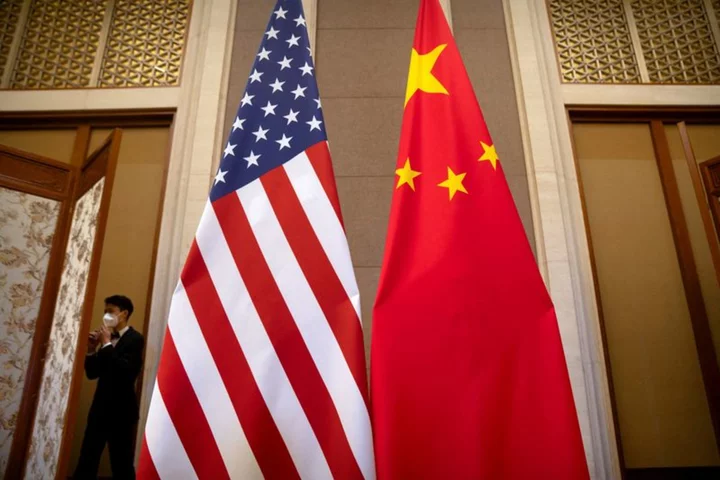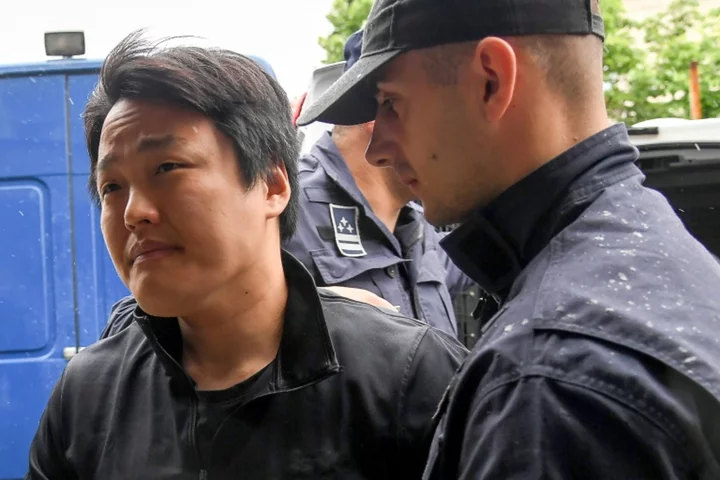Alibaba was among the high-profile Chinese tech companies brought to heel by the ruling Communist Party, but the Asian Games in the firm's home city are proving to be a golden opportunity.
Co-founded by Jack Ma in Hangzhou nearly 25 years ago, the Games would probably grind to a halt without Alibaba because it runs the multisport extravaganza's cloud computing system.
It also owns the Slack-like Dingtalk platform that the army of Games staff uses and Alibaba-affiliated Alipay is the only Chinese digital wallet accepted across venues.
Underlining how Alibaba has appeared to have come in from the cold, at least for now, organisers are shuttling journalists to the group's campus on day trips celebrating "a pioneer in China's Internet economy".
Alibaba's partnership deals with the Games were signed before the official crackdown aimed at reining in China's burgeoning tech sector.
The Games are now a precious moment for Alibaba to burnish its image anew and for its representatives to hobnob with political, business and sports officials from across China, Asia and beyond.
- Industry crackdown -
In 2020 Alibaba became the country's first tech giant to bear the brunt of increased oversight.
Chinese authorities called off what would have become one of the most valuable public listings in history -- valued at $34 billion -- for its former subsidiary and Alipay owner Ant Group.
One month after officials hit the brakes on Ant's IPO, Alibaba was investigated for alleged anti-competitive practices, then issued a fine of $2.8 billion.
A series of moves against other tech firms in the following months slashed major industry players' market capitalisations by billions of dollars.
Authorities targeted companies with fines and rolled out rules for sectors ranging from music streaming apps to shopping and car-hailing, citing national security and anti-trust concerns.
Tech bosses, notably the charismatic Ma, toned down their public behaviour as Beijing grew concerned about their increasing power and audacity to step out of line.
Experts say that officials have subtly changed their tune in recent months and softened their grip as the Chinese economy grapples with flagging growth.
Chinese premier Li Qiang in July called for government departments to "create a fair and competitive market environment... and improve transparent and predictable regulation to push for the healthy development of the industry", according to state-run CGTN.
- Tight rein -
Alibaba is not the only Chinese digital economy player getting its chance to shine at the 19th Asian Games in Hangzhou, the unofficial home of the country's tech industry.
Long-time rival Tencent is also seeing its moment of glory, with the new discipline of eSports -- which has proved wildly popular with fans -- dominated by Tencent-linked titles.
The ascendance of eSports to a medal event at the Games comes after another lengthy official campaign, this one against video gaming, part of the larger tech crackdown.
Tencent, the world's largest video game company by revenue, did not receive new video game licences from Chinese authorities for 18 months starting in mid-2021.
Xin Sun, senior lecturer in Chinese and East Asian business at King's College London, said tech companies are still operating on a tight rein despite signs of a softening official attitude.
"From the perspective of the government, contributions from the big techs are still desirable for such a mega project like the Asian Games," Sun said.
"Because of not only the financial resources they provided but also the various technologies they have brought about to showcase China and Hangzhou's development achievements.
"There is little need to give up all these benefits, especially since the tech sector has now been placed under quite restrictive regulatory regime and strong political control," he added.
He noted that even as China celebrated its tech achievements in Hangzhou, its cyberspace regulator was tightening its grip on Games-related online activity, issuing a directive last month against "spreading false information" about the event.
tjx/pst









